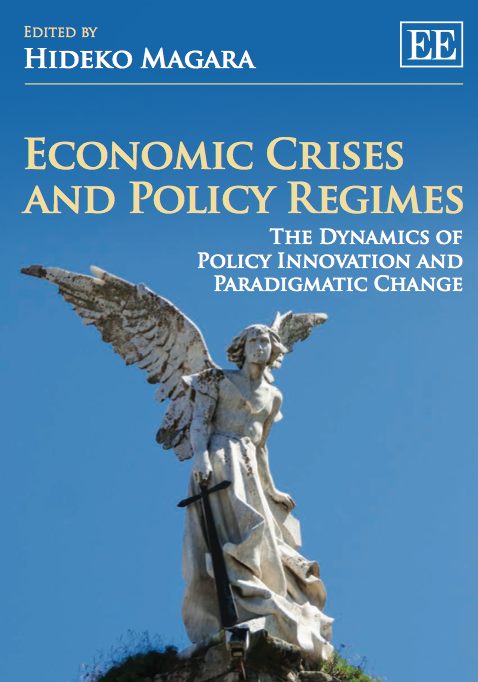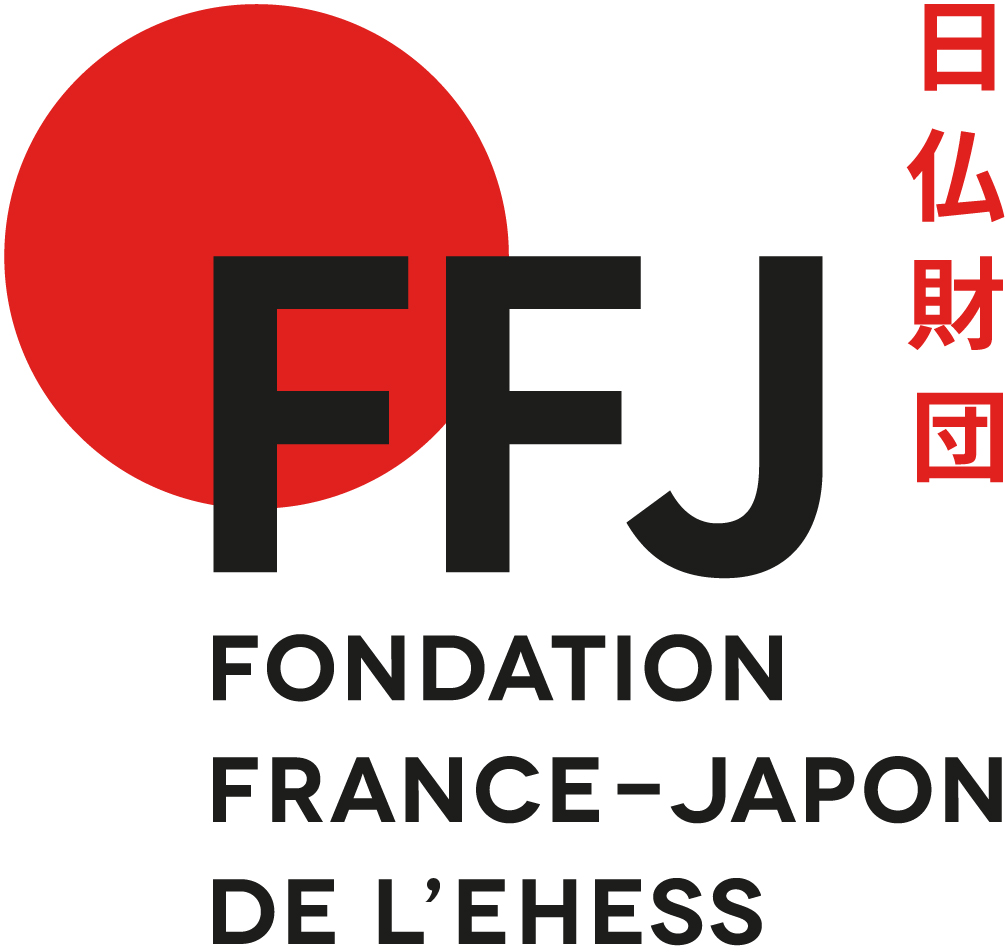Hideko Magara
Economic Crises and Policy Regimes
 |
1. Policy Regimes
For more than two decades, developed countries have witnessed massive job losses, lowered wages, slow (sometimes negative) economic growth and widening inequality under governments—left or right—that have implemented similar neoliberal policies. The ongoing crisis can be viewed as a systemic crisis whereby the major actors have stuck to their old strategies, but they are no longer functional. While social and economic imbalances grow, the existing institutional order is eroding. Nonetheless no one appears to have the ability to construct a new set of institutional forms effectively (Boyer, 2014; Amable and Palombarini, 2014).
Is it possible for a democracy to overcome an economic crisis through its electoral mechanisms? Can the electorates in various countries in the face of a crisis make an appropriate choice in an election? Under what conditions can a government convert a crisis of its economy into growth? I and my research collaborators have explored, theoretically and empirically, the possibility of a transition to a new political– economic paradigm by seeking feasible answers to the questions above.
Our project is inspired by Adam Przeworski’s notion of ‘policy regime’. He defines policy regimes as circumstances in which the major political parties of most countries pursue and implement similar policies regardless of their ideological orientations (Przeworski 2001, 2010). From the end of World War II to the early 1970s, social democratic policies based on Keynesianism covered developed countries as a response to the Great Depression of 1929. After the oil shocks of the 1970s (to 2008), neoliberalism conquered the world. Przeworski shows that a policy history has the following dynamics: first, a new government comes to power, succeeds at imposing a drastic policy innovation and develops a story on the basis of the secret of its success. Opposition parties criticize the government during an election campaign, but the electorate knows that even the opposition will seek the same policies as the incumbent’s once the opposition wins the election. The policy differences between the two camps are so small that the winning party will seek to implement policies similar to the previous government’s policies. Thus, no policy change occurs even if there is a government alternation, at least until somebody—right or left—introduces a significant policy innovation. When new policies achieve success, the cycle is repeated.
2. New issues under the neoliberal policy regime
Heterogeneity and exchange rate: The 2008 financial crisis and the 2011 Euro crisis hit not only the developed but also the developing countries. While the advanced economies have sought fiscal stabilization and economic growth to avoid a deterioration of the international balance of payments, the newly emerging economies require a new growth strategy, different from that based on excessive exports, which expands domestic demand.
As for Europe, heterogeneity among the eurozone members, namely the North–South divide, has become apparent. The Euro has created polarization, with a trade surplus in the North and a trade deficit in the South, and such imbalances cannot be corrected through a purely financial strategy (Boyer 2013, p. 7).
According to Boyer (2013), the Euro cannot address the issue of the exchange-rate regime. Eurozone member states emit debts in a currency that they cannot issue at the national level. Beginning in 2002, the same interest rate was set for all national, public debts within the eurozone. Thus, some members cannot maintain the economic competitiveness of their economy in the absence of periodic devaluations. The rigidity of the exchange rate has severely penalized national competitiveness, and the divergence between high value-added and skills economies and those limited to more traditional production has become apparent.
Wage and productivity: During the present systemic crisis, the past compromise, namely the basic capital-labor institutionalized compromise, has no longer been viable. The wage nexus has experienced many transformations: the deindexing of nominal wage (with respect to inflation and productivity); decentralization and individualization of labor contracts; recurring reforms in the organization and financing of welfare (Boyer 2013).
Equally important as the exchange rate are the problems of low wages and the widening income inequality that have been occurring in the advanced democracies that are in the process of globalization. The poverty ratio is increasing in industrialized countries, including Japan, Italy and the United States. It has been a long time since the wealthy countries entered the capital-saving technological phase, but they have taken the opposite path from attempting to reduce income inequality during the neoliberal era. The background of this negative outcome in the advanced countries was that they were forced to compete with the middle-developed countries that had started exporting industrial products, and that the inflow of population from the latter countries to the wealthier ones began in the 1970s. Reflecting these international constraints, wages in the advanced countries gradually declined. Neoliberal ideology and meritocracy spurred this trend (Bresser-Pereira 2010).
Poverty alleviation is becoming one of the most important goals for both the developing and the developed countries to achieve. What strategies could lower the poverty rate and at the same time maintain economic growth and stability?
Inequality and the limits of austerity policies: European countries have increasingly tailored their policies to conform to neoliberal doctrines of financial liberalization and market deregulation. Since the Greek crisis, the Euro and the policy orientation of the European Central Bank have shown a clear tendency to enforce austerity and often have been accused of not making a visible effort to solve the problems of lower growth, greater inequality, a decline in real incomes and increasing unemployment (Schmitter 2013).
If austerity policies result solely in a prolonged recession, the feeling of unfairness among most voters will be exacerbated easily. When unemployment leads to be a rather residual variable, it hinders domestic demand and eventually triggers social conflicts and political turmoil.
Thus, governments should place the first priority not simply on making and implementing a series of correct policies, but on the formation of a social and political consensus that is simultaneously compatible with the requirements of a more globalized economy and the pressing demands on the part of citizens.
Political uncertainty: The neoliberal policy regime has destroyed the climate for superior economic performance along with greater social justice, which had been fostered under the social democratic policy regime.
In many developed countries, extremist parties and movements have been achieving a certain degree of electoral success. It has become increasingly more difficult for established parties to form coalition governments. Democracy in the developed countries may well survive the current economic crisis, but it will have to change its nature; it will have to become even more different from the form of democracy that the Left and the Right constructed after World War II. The developed countries must find and institutionalize a new social contract and a more regulated political economy, and new channels of democratic participation and mechanisms of accountability to their citizens (Schmitter 2013).
3. Toward a new policy regime?
New social alliance?: As Przeworski argues, the developed democracies shifted their policy regimes from a social democratic to a neoliberal orientation between the post-war period and now. However, there was a variety in each country’s growth pattern. Particular attention should be paid to the changes in the consensus that each country formed and in the social alliances that backed such consensus (Amable, Guillard & Palombarini 2012). Various institutional reforms to overcome economic crises and to formulate a new paradigmatic change for growth require the formation and the sustainability of social–political coalitions under a democratic system.
After a painful period of adjustment, a return to an economic recovery should be reconciled with the fulfillment of the social demands of citizens, including job creation and the preservation of the education and healthcare systems. Boyer (2013) argues that the necessary complementarities to be reorganized between the international and domestic levels include, the financial strategy and the recovery of productive investment, the short-term reduction of public finance imbalances and the long-term strategy of research and development and permanent scaling up of skills, the monetary policy and the national budget, tax politics. The creation of these institutions can be the expression of the formation of political alliances under the hegemony of a leading collective actor.
Escaping from el Angel exterminador: According to Bresser-Pereira (2014), the mechanisms that lead to a hegemonic policy regime are not simple. First there is a crisis of the previous policy regime; second there is a strong intellectual elaboration followed by rational persuasion and effective co-optation. After the new ideas have acquired legitimacy, people almost unconsciously conform to ‘one best way’. The hegemony has now become one of el angel exterminador[i] (the exterminating angel).
Facing an obvious economic crisis, people commonly come to think that existing institutions cannot be retained without reform (Fujita, 2014). Why do the voters not turn the rules of the game from that of a notable disparity between a small number of winners and an ever-increasing number of losers to a win-win situation again?
Indeed, one leading actor might change the rules of the game to his/her benefit and find a way out of the crisis (Boyer 2013, p. 55). One person, hopefully one leading politician, needs to be courageous enough to say ‘Let’s get out of here together’, just as Silvia Pinal successfully persuaded the people in the room who were obsessed by the angel exterminador and who somehow believed that they were cooped up.
Political leaders, on the one hand, need to construct a new social–political coalition which provides stable electoral support for a new policy regime, and on the other hand, sweep aside various types of populism. Can the electorates overcome such democratic vulnerability? Can a government that tries to maintain the exchange rate skillfully shift the policy regime in a welfare-oriented direction. Whether or not a long-awaited policy innovation will come to fruition is still unclear. In any case, the quality of democracy is the key to an epoch-making policy innovation. The most important issue for democratic voters is to find out which political forces and coalitions can achieve welfare provisions, poverty reduction and economic growth through a series of institutional adjustments, and to firmly support and encourage them.
Based on Hideko Magara, ed., Economic Crises and Policy Regimes: The Dynamics of Policy Innovation and Paradigmatic Change, edited by Hideko Magara, Edward Elgar Publishing Ltd, 2014.
 |
Hideko MAGARA is professor at Waseda University, she specializes in comparative politics, and has published among others: The Politics of Structural Reforms: Social and Industrial Policy Change in Italy and Japan, edited by Hideko Magara and Stefano Sacchi, Edward Elgar Publishing Ltd, 2013.
Luis Buñuel perhaps attempted in his film El Angel Exterminador (1962) to describe metaphorically people’s obsession under authoritarian rule by using the image of el angel exterminador, but the situation in which people believe they cannot leave a room once they have entered it seems to resemble the situation under the neoliberal credo.
|










